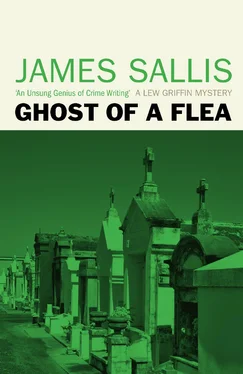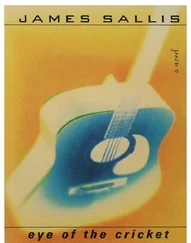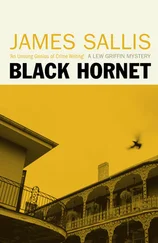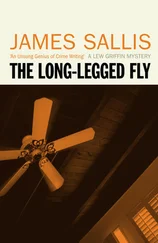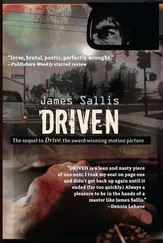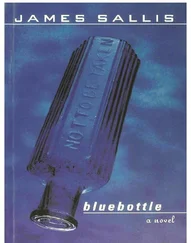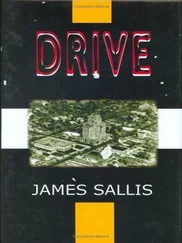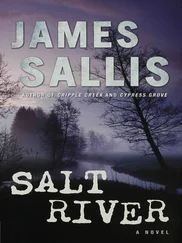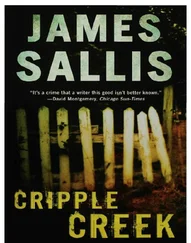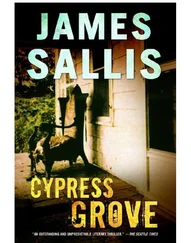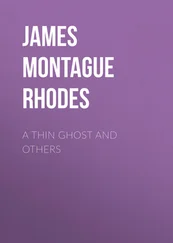James Sallis - Ghost of a Flea
Здесь есть возможность читать онлайн «James Sallis - Ghost of a Flea» весь текст электронной книги совершенно бесплатно (целиком полную версию без сокращений). В некоторых случаях можно слушать аудио, скачать через торрент в формате fb2 и присутствует краткое содержание. Жанр: Криминальный детектив, на английском языке. Описание произведения, (предисловие) а так же отзывы посетителей доступны на портале библиотеки ЛибКат.
- Название:Ghost of a Flea
- Автор:
- Жанр:
- Год:неизвестен
- ISBN:нет данных
- Рейтинг книги:4 / 5. Голосов: 1
-
Избранное:Добавить в избранное
- Отзывы:
-
Ваша оценка:
- 80
- 1
- 2
- 3
- 4
- 5
Ghost of a Flea: краткое содержание, описание и аннотация
Предлагаем к чтению аннотацию, описание, краткое содержание или предисловие (зависит от того, что написал сам автор книги «Ghost of a Flea»). Если вы не нашли необходимую информацию о книге — напишите в комментариях, мы постараемся отыскать её.
Ghost of a Flea — читать онлайн бесплатно полную книгу (весь текст) целиком
Ниже представлен текст книги, разбитый по страницам. Система сохранения места последней прочитанной страницы, позволяет с удобством читать онлайн бесплатно книгу «Ghost of a Flea», без необходимости каждый раз заново искать на чём Вы остановились. Поставьте закладку, и сможете в любой момент перейти на страницу, на которой закончили чтение.
Интервал:
Закладка:
Enveloped with mucus, smeared with blood, the newborn lay nestled in Doc’s arms. He held it out to me, and as he did, the tremors, which had stopped when he bent over the young woman, started up again. Hands trembling, he tore strips of cloth from the woman’s slip and tied off the cord, cut between ties with a pocket knife. Tears streamed down his face.
“You never quite get over it,” he said.
When I went in for the alcohol, I’d asked the store clerk to call an ambulance, which now arrived.
“Heart rate’s 160 or thereabouts,” Doc told the paramedics. “Color good, good capillary fill, good cry. Apgar, I’d put at about 9/9.”
“You a doctor, sir?” one of them, a stocky woman of thirty or so with flyaway blond hair, name tag Cherenski, asked.
“Me? No, I’m a drunk. Speaking of which, I sure could use one right now. A drink, that is.”
Shaking her head, Cherenski set to work, checking vitals, wrapping the baby in sterile batting, starting IVs.
“You did good here, sir,” she told Doc.
“Let’s get that drink,” I said.
We found a bar half a block down, where Doc sat beside me through four double whiskeys. His tears never let up the whole time, and I made no effort to talk. When we parted outside he nodded thanks, starting off in one direction then abruptly reversing. I don’t suppose it made much difference, finally.
Drop by drop at the heart, the pain of the pain remembered comes again, Aeschylus wrote in Agamemnon .
It sure as hell does. And the gods did no better than we’ve done ourselves. They never knew how to care for us, either.
Chapter Thirty-Two
After a while I got up and walked to the window. I felt that if I didn’t say anything, if I didn’t think about what had happened, didn’t acknowledge it, somehow it might all be all right again. I listened to the sound of my feet on the floor, the sounds of cars and delivery vans outside, my own breath. Whatever feelings I had, had been squeezed from me. I was empty as a shoe. Empty as the body on the bed behind me.
A limb bowed and pecked at the window, bowed and pecked again. Winds were coming in across Lake Ponchartrain with pullcarts of rain in their wake. I heard music from far off but couldn’t tell what it was, not even what kind. Maybe only wind caught in the building’s hard throats and hollows, or the city’s random noise congealing.
Sooner or later I’d have to move. Go back out there, into the world, a world much smaller now, where it was about to rain. And where one of the coldest winters in New Orleans history like a bit player waited impatiently in the wings, strutting and thrumming, for its cue to go on.
Out there in the window-world where a moth beat against glass, a man I knew both too well and not at all stood watching. A man dark and ill-defined, with the mark of lateness, of the autumnal, upon him too.
I must come to some sort of conclusion, I suppose , I had written, years ago. I can’t imagine what it should be .
Now I knew.
Chapter Thirty-Three
This is what happened, this is the truth.
Drop by drop at the heart, the pain of the pain remembered comes again. Memory holds you down while regret and sorrow kick hell out of you. Minutes drop like black cherries from my side.
A birth, a death. Just the kind of balance and open structure my father always loved. He got off the streets finally, though never as far as he thought he had, or as far as he wanted. Nor did he ever, quite, get away from drinking. In those last years it didn’t ride him as it had, didn’t rent out the front room like before, but it was still a frequent and welcome visitor. Many nights, as levels of Scotch or wine fell in their bottles, he’d talk about books he loved, books he wanted to write. So I guess part of what I’m doing is writing them for him. Five so far; this, I think, the last.
David here, if you’ve not yet realized it.
Books and women, his friends, had saved him, he said. And then he would quote Blake. The Imagination is not a State: it is the Human Existence itself.
Four years ago now that he died.
Four years since, on a bleary six-o’clock morn, so hot already that sweat was pooling in hollows of chest and back, I came to the end of that first book and wrote the words, a man I know both very well and not at all. My father was a complicated man, self-educated and bizarrely ignorant of whole swaths of knowledge yet the best-read person I ever met, gentle with those he loved, violent with others and with himself, a man who often seemed to be pursuing redemption with one hand, self-destruction with the other. I know I’ll never understand my father’s life. He came up in a world I can only imagine. Most of all, I think, I treasure that single picture of him sitting with his own father on the steps by the train station as they ate their pass-through breakfasts and Grandfather spoke of invisible men. One of many stories he told me. Like others, I urged him to write them down, but he never did.
We can never truly know others, of course. We’re condemned without pardon to our own lives and minds, these islands of self. No one believed that more than my father. And no one believed it more important that we keep trying to break through, to break out-even knowing all the time we can’t.
In having that last chance to get to know him, I was blessed. I’m not sure we ever spoke of much of anything substantial, but speak we did, for hours, sitting at the kitchen table, in the living room looking out those tall windows, on the gallery steps over coffee, beers, whatever he was drinking at the time, my iced tea. He’d been a stranger to me for most of my life. Only in those last years did I come, as much as I ever will, to know him. Not an easy time for either of us. When, overwhelmed and confused, waking each morning with terrors I think he knew all too well, I fled, he risked everything he had to find me. There at the end it was Don who came. Following up with Greevy, the forensic entomologist, he learned where the body they’d first thought mine had come from. Don stepped up to me one day outside a Circle K across the river in Algiers to tell me my father was dying.
Finally it doesn’t much matter what’s true here, what imagined. In trying to re-create my father, I’ve used whatever sleights and subterfuges seemed to work. The life he lived in the mind was every bit as important to him and as real as, often more so than, the one he lived externally. He loved old blues, the flatness and predictability and emotional charge of them, things like “Po’ Boy, Long Way from Home,” “Going Back to Florida,” “Death Letter Blues.” And he loved improvisation, Sidney Bechet, Eric Dolphy, Charlie Parker, Monk, Lester Young, those unexpected backflips, selfcrossings and contradictions. There at the end oddly enough, Alouette tells me, it wasn’t these he listened to, but Bob Dylan’s “Knockin’ on Heaven’s Door,” playing it over and over.
Please take these chains off of me, I can’t use them anymore.
Deborah found him on the floor in the hall. She’d called back to see if they could have dinner before the play and, getting no answer, not even the machine, grew worried. Five tries later, she had Willie drive her over. Still had her key. Almost immediately after speaking to her and hanging up the phone my father had suffered another stroke, not a small one this time. He’d been unconscious, how long he had no idea, and, since, had been trying to drag himself back to the phone, but the right side of his body had seceded. Whole damn thing (he said weeks later, laughing) went south.
God, how I remember his laugh.
Here’s what else Alouette tells me:
He wasn’t able to do much there towards the end. I’d help him down to the park, or he’d sit on the porch for hours with a blanket, watching people come and go. Once every week or so he’d try to make dinner and I’d pretend to eat it. Most nights, I’d read to him.
Читать дальшеИнтервал:
Закладка:
Похожие книги на «Ghost of a Flea»
Представляем Вашему вниманию похожие книги на «Ghost of a Flea» списком для выбора. Мы отобрали схожую по названию и смыслу литературу в надежде предоставить читателям больше вариантов отыскать новые, интересные, ещё непрочитанные произведения.
Обсуждение, отзывы о книге «Ghost of a Flea» и просто собственные мнения читателей. Оставьте ваши комментарии, напишите, что Вы думаете о произведении, его смысле или главных героях. Укажите что конкретно понравилось, а что нет, и почему Вы так считаете.
